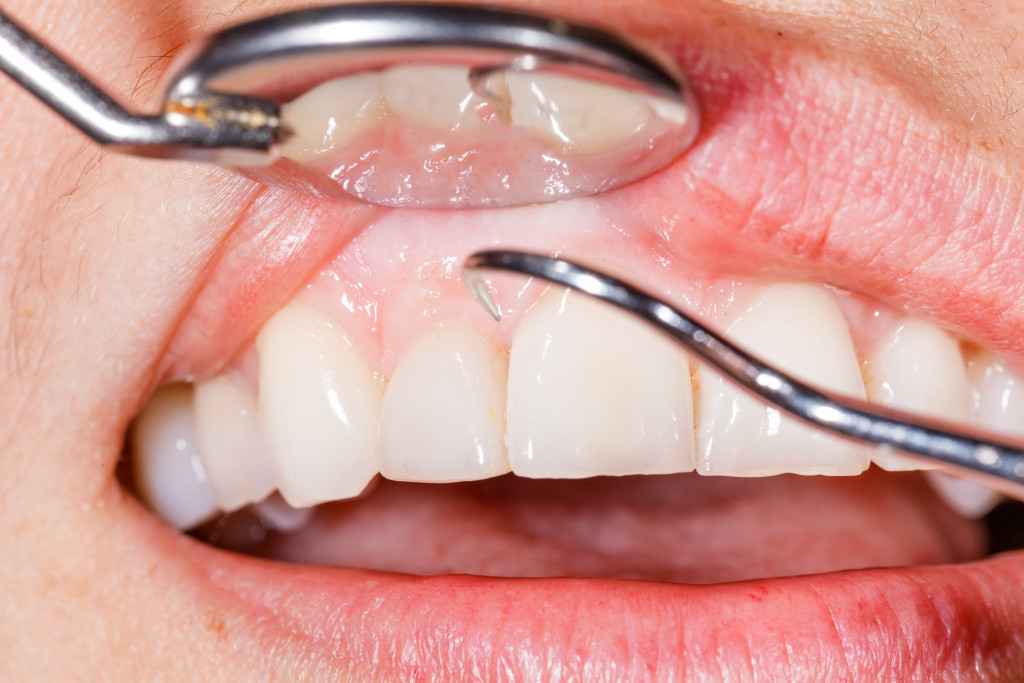Gum disease is a severe dental issue that can lead to tooth and bone loss if left untreated. It can also cause inflammation and bleeding in the gums. The good news is that gum disease can be prevented and treated if it’s caught early. You can take steps to prevent and treat gum disease to keep your smile healthy and strong. This blog post will discuss the best tips for dealing with gum disease so you can take control of your oral health.
1. Oral hygiene
The most crucial step to prevent gum disease is brushing and flossing regularly. Brushing twice daily with a soft-bristled toothbrush and fluoride toothpaste will help remove plaque from your teeth and gums. Flossing daily removes bacteria-filled plaque between teeth that would otherwise harden into tartar if not removed. Many people also find that mouthwash with fluoride can help keep their teeth and gums healthy.
If you already have gum disease, paying extra attention to your oral hygiene routine is essential. Make sure to brush and floss gently but thoroughly to remove plaque and bacteria from your teeth and gums. Some people also find that using an electric toothbrush or a special brush designed to remove plaque from the gum line can help.
2. Professional dental care
It’s also important to visit your dentist regularly—at least once every six months. During these visits, your dentist can check for any gum disease signs and advise you on keeping your teeth healthy and strong. Your dentist may also recommend scheduling more frequent visits if they detect early signs of gum disease to ensure that the problem does not worsen over time.
These professionals can also help if you lose some of your teeth due to gum disease. Dentists can provide treatments such as implants, bridges, or partial dentures to replace missing teeth and restore your smile. These highly effective treatments can help you feel confident about your smile again. Ask your dentist for more information if you’re interested in these treatments.
3. Treatment options
If you already have gum disease, there are several treatments available that can help reduce or eliminate the symptoms of the condition. One option is scaling and root planing, which involves deep cleaning below the gum line to remove bacteria-filled plaque and tartar buildup from around the roots of your teeth. This procedure helps reduce inflammation of the gums while also reducing gum pocket depth—both essential for controlling gum disease.
Additionally, medications such as antibiotics may be prescribed by your dentist to control bacterial growth in the mouth and reduce inflammation caused by infection. Some dentists also use laser therapy to reduce inflammation and kill bacteria in the mouth. This therapy is also minimally invasive, so they can use it in place of surgery for some patients.
4. Lifestyle changes
Making healthy lifestyle changes can also help prevent and treat gum disease. Quitting smoking is one of the best things you can do for your gums, as smoking can make it harder for your body to fight infection. Eating a balanced diet rich in fruits and vegetables is also important for keeping your gums healthy. Additionally, exercising regularly and reducing stress levels can help reduce inflammation in the body, which can help keep your gums healthy as well.
Some people also find that natural supplements such as omega-3 fatty acids can help reduce inflammation in the gums. These supplements can be taken in pill form or added to your diet by eating foods such as salmon and other fatty fish. Make sure to talk to your dentist before taking any supplements to ensure they are safe and appropriate for you.
5. Follow-up care
Finally, it’s important to follow up with your dentist regularly after any treatment for gum disease. Because gum disease can recur, it’s important to stay on top of your oral hygiene routine and visit your dentist for regular checkups. If you notice any signs of recurrence, such as bleeding or inflammation, make sure to contact your dentist right away for treatment. You want to catch any recurrence of gum disease as soon as possible so it does not cause more damage to your teeth and gums.
Gum disease is a serious condition that requires proper care to avoid long-term damage to your oral health. The best way to prevent gum disease is through good oral hygiene, regular dental visits, and healthy lifestyle changes. If you already have gum disease, there are treatments available to help reduce symptoms and keep it from worsening. Make sure to follow up with your dentist regularly and contact them right away if you notice any signs of recurrence. With the right care, you can take control of gum disease and keep your smile healthy and strong.

